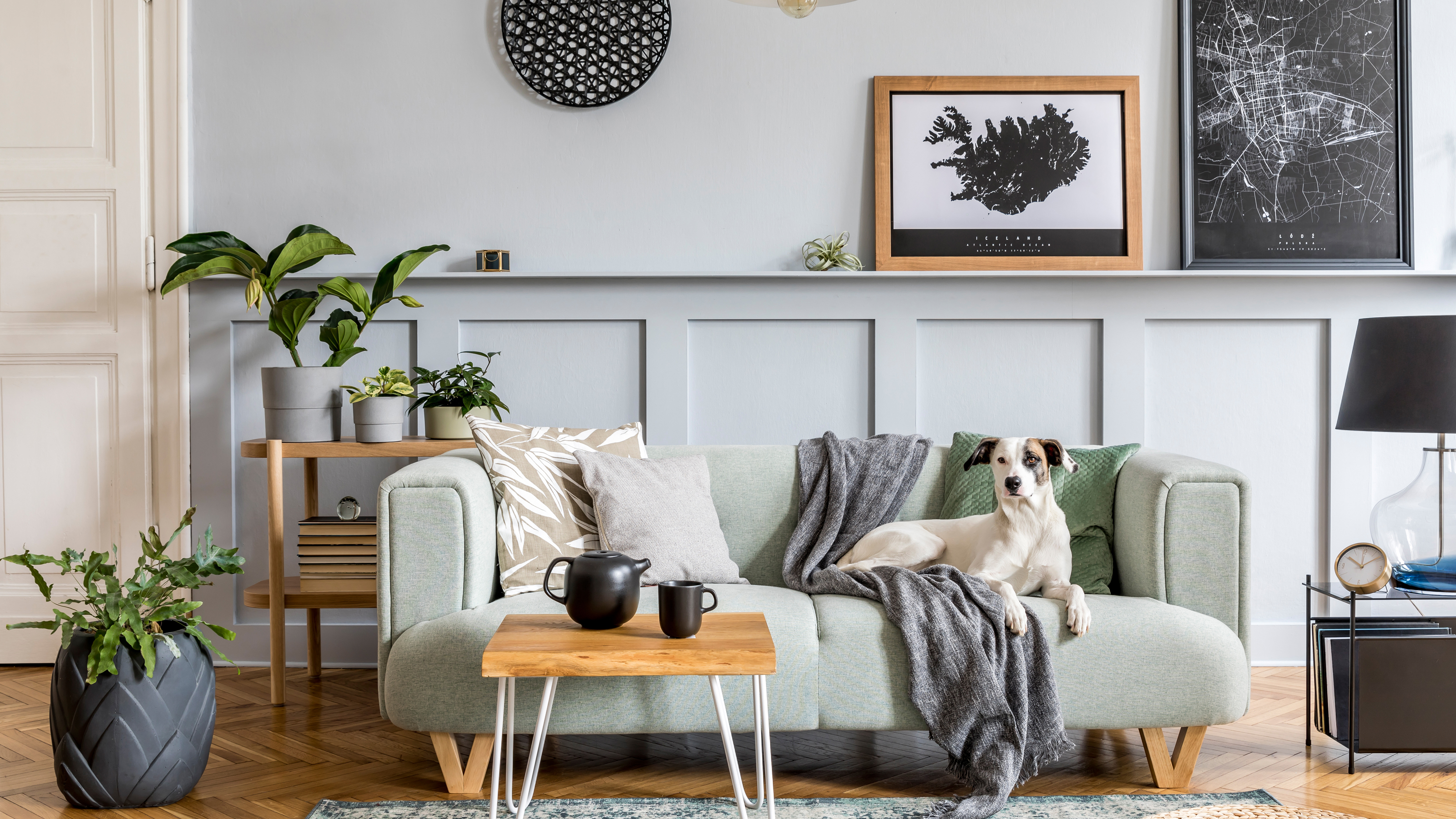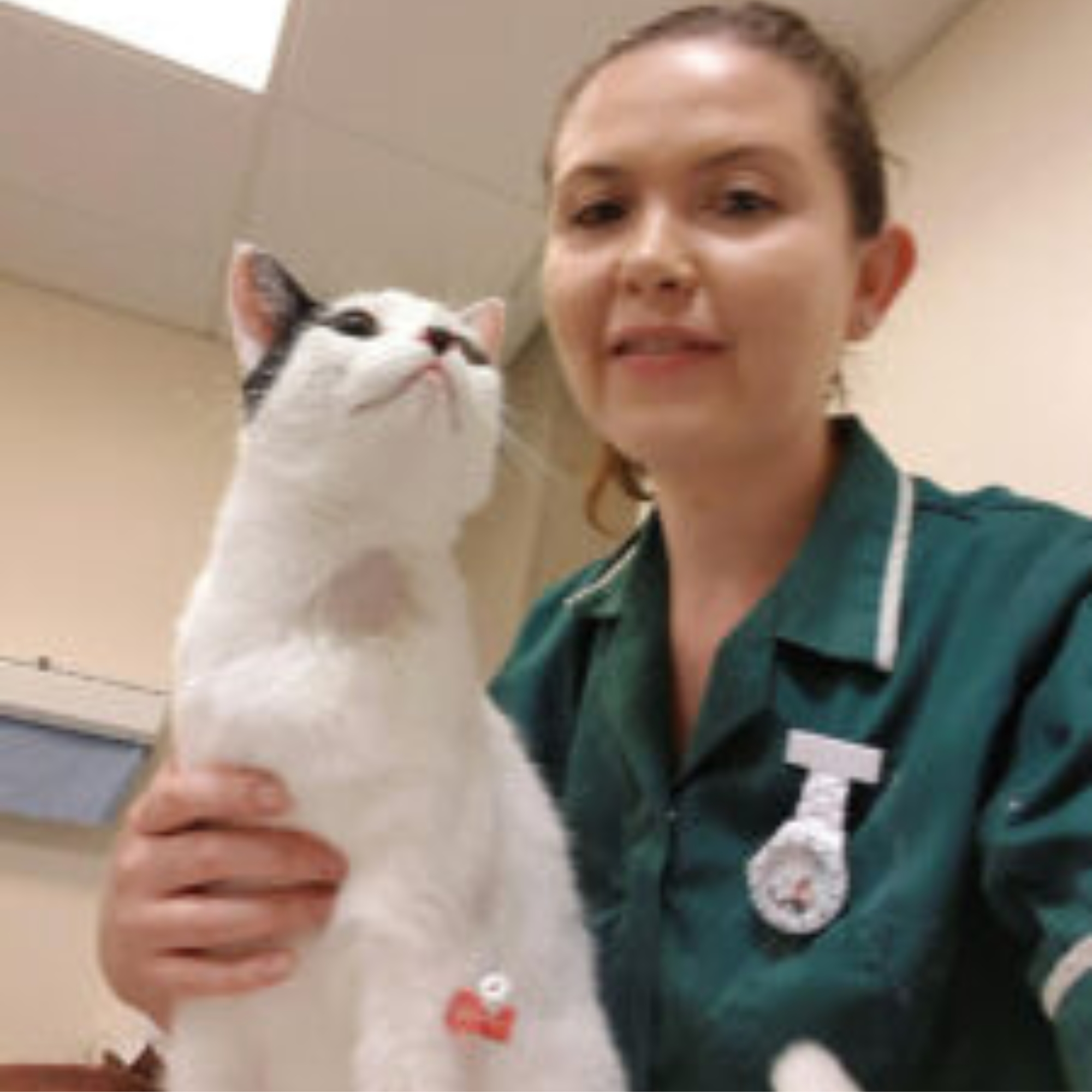Are diffusers bad for dogs? Here's what three vets say about using essential oils around pets
Are diffusers bad for dogs? Decide what's best for your pet after reading this expert advice from three veterinary professionals


Get small space home decor ideas, celeb inspiration, DIY tips and more, straight to your inbox!
You are now subscribed
Your newsletter sign-up was successful
'Are diffusers bad for dogs?' Many a pet owner has asked this question while enjoying their favorite essential oil. Diffusers are generally safe for people and are understood to pose fewer health risks than burning candles or incense. But what about your canine friend?
The best essential oil diffusers are marketed as being better than synthetic home fragrances that use Parrafin wax, butane, and other toxic nasties. However, even the best home fragrance that is derived from natural, organic ingredients can still be problematic for your dog. We've spoken to qualified vets and canine specialists — here's what they think about using your oil diffuser around your pet.
Are diffusers bad for dogs? We ask the experts
FAQs
Though a few of the team own dogs, we reached out to industry experts with a professional background in animal care to get you the right answers. Here are some popular questions that people always ask on Google.
Are diffusers bad for dogs?
The answer very much depends on what type of oil you use in your diffuser. Dr. Jamie Whittenburg (DVM), is the Director of Kingsgate Animal Hospital in Texas and provides advice for Senior Tail Waggers.
Whittenburg told us that 'depending on the product in the diffuser, home fragrance diffusers can be problematic.' Generally, she advises that dogs ‘tend to be less sensitive’ to diffusers than cats, so if they just occasionally wander into a room with a diffuser in it, they should be ok.
It’s a different matter if you are constantly using a diffuser in the room where your dog spends a lot of time. 'It is generally not safe for a dog to be in a room where a diffuser is kept,' says Whittenburg.
Registered vet nurse Lucie Wilkins agrees. Wilkins has over 10 years' experience working with dogs and says that whether a diffuser is safe for a dog ‘It all depends on what kind of fragrance or oil that you're using. Some are toxic, and others dogs can be fine with.’
Wilkins goes on to say that when choosing what you put into your diffuser, she recommends not using 'any diffuser oil with artificial ingredients. These can be toxic to dogs, and humans too! Use only natural essential oils, which are far safer to bodies, and the environment.'
Having said this, even natural doesn't always mean safe. The question 'are essential oils safe?' does not have a straightforward answer even for humans who have been using essential oils for millennia. When it comes to our pets, there's an even greater need to be cautious about the types of oils you're using around your dog (or cat).
Which essential oils are safe around dogs?
So are essential oils bad for dogs? Again, it’s worth pointing out that dogs are a little bit less sensitive to essential oils than cats, and it is safe to use a greater range of oils around dogs than around cats. Wilkins gives her seal of approval to "Cardamom, Fennel, Helichrysum, Frankincense, Spearmint, Chamomile, Frankincense, Ginger, Lavender, and Myrrh Oil." Cedarwood can also be added to the list of dog-safe oils.
Oils you should always avoid diffusing around dogs are: "Cinnamon, Citrus, Tea tree, and Peppermint." Peppermint in particular is "commonly mistaken for being non-toxic to dogs" but is dangerous for them. Eucalyptus and ylang-ylang should also be avoided.
All essential oils should be properly diluted in your diffuser, so that the potential for irritation, even with dog-safe oils, is kept to a minimum.
How can I use my diffuser safely around my dog?
First of all, know the signs that your dog is especially sensitive to diffusers. Like humans, dogs don’t all react to oils in the same way, and some will be worse affected than others. ‘Dr. Linda Simon, a veterinary surgeon and also a veterinary consultant for FiveBarks, advises that ‘dogs with asthma or atopic allergies are often less tolerant of diffused fragrances, for example.’
What should you be looking out for? ‘If your dog is sensitive to the diffuser, you may notice they act differently when in the room. Signs can include sneezing, a runny nose, red eyes, altered breathing, nausea, tremors, and even a personality change.’
Of course, the biggest concern with using diffusers around your dog is actually that your canine companion may knock over the diffuser and get the oils on their skin and/or lick them off. This is the ‘more dangerous’ scenario, according to Simon, and ‘is why all diffusers must be kept well out of reach of our pets.’
So, are diffusers bad for dogs? Not necessarily. If you only use oils that are safe for dogs, keep the diffuser well out of reach, and never leave your dog in the same room with the diffuser for prolonged periods, your furry friend will be fine.
Meet the experts

Dr. Jamie Whittenburg is a veterinarian director at Senior Tail Waggers, and director of Kingsgate Animal Hospital, a full-service animal hospital in Lubbock, TX. She graduated from Kansas State University's College of Veterinary Medicine with a Doctorate in Veterinary Medicine in 2006.
Dr. Whittenburg is a nationally recognized expert: on behalf of Senior Tail Waggers, she has been interviewed and quoted in Dogster Magazine, BARK Magazine, The Wall Street Journal, The Reader’s Digest, SingleCare, Rover, Chewy, and many other publications.
From 2011 to 2013, Dr. Whittenburg was a veterinarian program director at Vista College and launched the only Veterinary Technology program accredited by the AVMA (American Veterinary Medical Association) in West Texas. Dr. Whittenburg designed, wrote, launched, and managed the program as the Program Director and Head Professor.

Hi, I’m Lucie Wilkins, and as a registered vet, I am passionate about cats and animals in general. I created this website to share my knowledge about cats, and help other cat lovers.
When I finished high school, I went to Roehampton University to study Zoology. After I passed my BSc, I decided to do a Masters of Ecology and Ethology in St Etienne, France. I came back to England after my Master's degree in 2007 and worked as an animal care assistant for a rescue center for cats, dogs, and rabbits in the National Animal Welfare Trust in Watford, UK for 3 years.
I’m also very passionate about wildlife. My most exciting experience with wildlife was in 2009 when I spent three months in Costa Rica’s jungle volunteering and collecting behavioral data for a study on wild Capuchins’ behavior in Santa Rosa national park.
On returning to England, I started working in a veterinary practice, and completed my Diploma in Small Animals Veterinary Nursing in 2013, and became a Registered Veterinary Nurse (RVN). I have since achieved the ISFM (International Society of Feline Medicine) Feline Nursing Certificate and now work at an animal hospital.

Dr Linda Simon MVB MRCVS is a locum veterinary surgeon who has worked in London for the past eight years. She graduated top of her class in small animal medicine from UCD, Dublin. She is currently a member of the Royal College of Veterinary Surgeons. As well as working in the clinic, Linda is an online vet for Just Answer where she has been providing online advice for thousands of owners since 2018.
If you're looking to use a diffuser to mask the smell of wet dog, poop, or urine, read our guide on how to get rid of pet odors in a small space first. Rather than disguise the offensive stench, it might help to tackle the root cause of the problem rather than mask it.
We promise that with these nine tips, you can eliminate even the most pungent smells in a petit scheme. You might be surprised that our advice to invest in the best air freshener is right at the bottom of the list.
Get small space home decor ideas, celeb inspiration, DIY tips and more, straight to your inbox!

Hi, I'm the former acting head ecommerce editor at Real Homes. Prior to working for the Future plc family, I've worked on a number of consumer events including the Ideal Home Show, Grand Designs Live, and Good Homes Magazine. With a first class degree from Keele University, and a plethora of experience in digital marketing, editorial, and social media, I have an eye for what should be in your shopping basket and have gone through the internal customer advisor accreditation process.